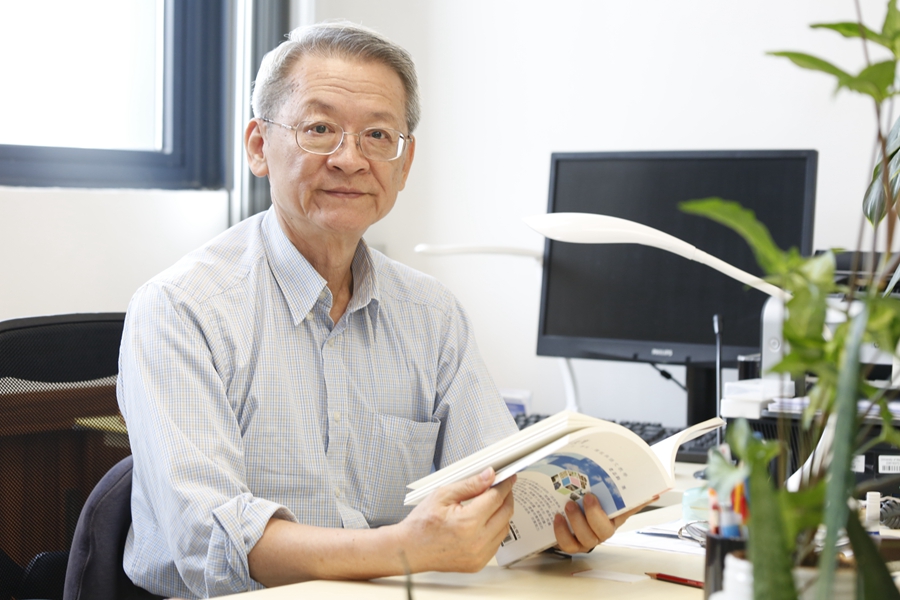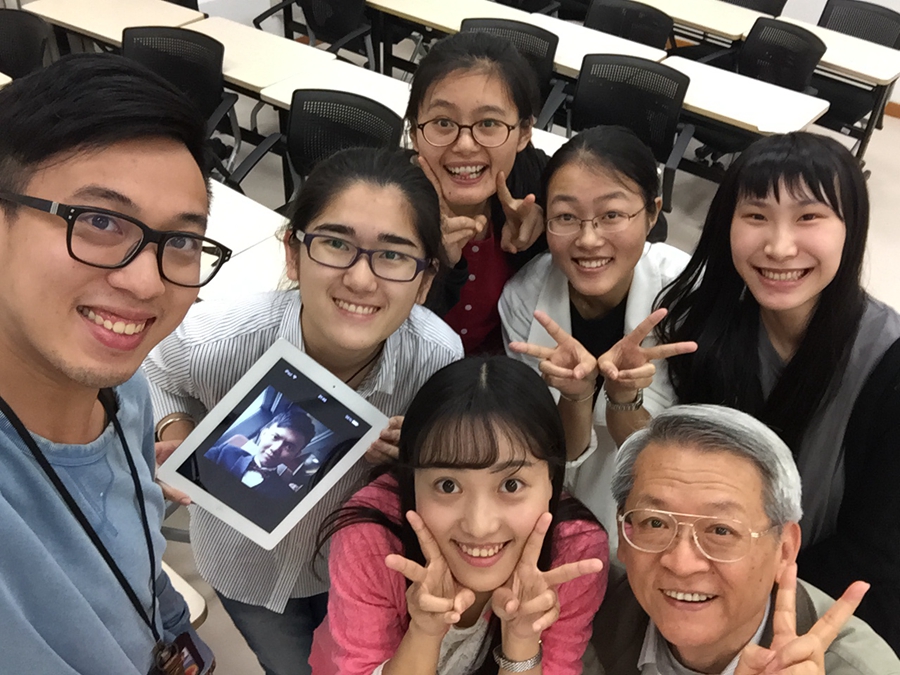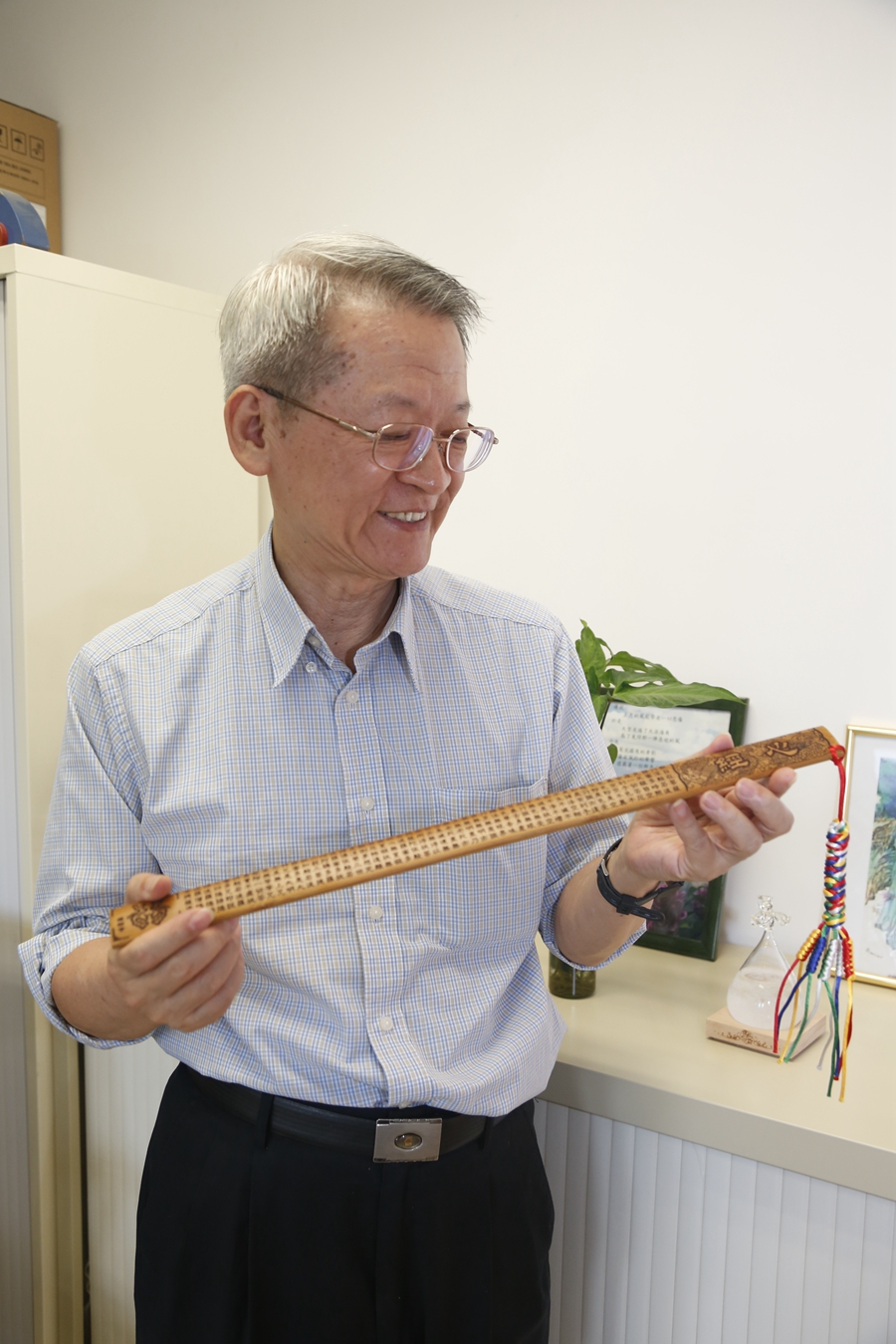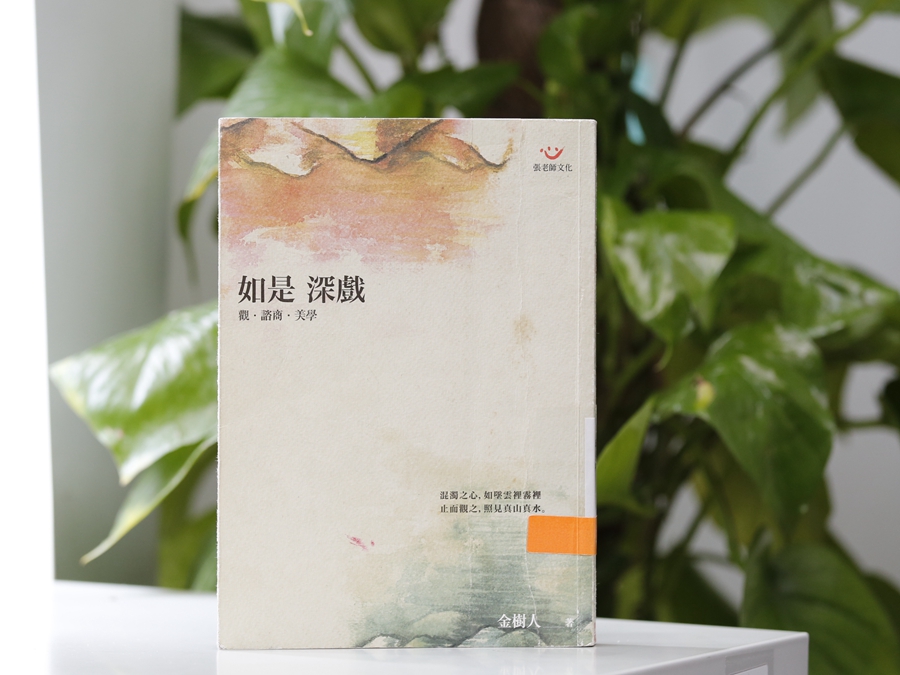Source: umagazine
Prof Jin Shuh Ren is a giant in the field of counselling psychology and enjoys great renown in Greater China. Years ago, inspired by the narrative technique of the book Soul Mountain , he created a unique counselling method known as ‘psychological displacement’. A veteran educator, Prof Jin also serves as a psychological mentor and supervisor for school teachers as well as psychological counsellors at numerous institutions.
In the past decade, Macao experienced fast economic growth, with some of its residents living an increasingly abundant life. Prof Jin came to Macao when the city was in its economic heyday. His observations over the past ten years have led him to conclude that psychological counsellors in Macao are faced with an increasingly heavy burden, and the problems they need to solve are also increasingly complicated.
Below is an interview with Prof Jin in which he shared his experience as an educator in psychological counselling in Macao over the past decade.
The silver-haired professor is an urbane gentleman who speaks at a moderate rate. During our interview, when he shared his insights from many years of experience in psychological education, he was emotional sometimes and pensive at others. ‘Psychological counselling isn’t a career path for everyone,’ he said. ‘But once you choose it, it becomes your calling. In my life, educating people is my calling. ’ True to his mission, Prof Jin has tirelessly trained countless students over the years.
J: Jin Shuh Ren U: umagazine
The Burden on Psychological Counsellors in Macao
U: For which organisations in Macao have you provided training in psychological counselling?
J: I have mainly provided training and mentoring for school teachers and counsellors. In training school teachers, I mainly teach them skills for student counselling so they know how to handle real-life cases. The problems teachers encounter during their teaching often involve students. So if teachers know more about psychological counselling methods, it would benefit their relationship with the students. In training counsellors, I mainly focus on new theories and techniques.
U: Is the number of people seeking psychological counselling increasing in recent years?
J: From my observation, psychological counsellors in Macao are faced with an ever-increasing burden. The per capita GDP in Macao has reached a very high level, which is a double-edged sword, because on the one hand it means that people are earning more money, but on the other hand people are working longer and spending less time with their family. The resultant relationship problems between couples as well as between parents and their children in turn create a sense of alienation and an increased incidence of mental disorders such as anxiety and depression. I am not saying that these problems are all caused by the development of the gaming industry, but there is no denying the fact that the rapid development of the gaming industry over the past decade has indeed changed the Macao society in many ways and has had a big impact on social structure and family life.
The Look in the Patient’s Eyes
U: What is the most unforgettable case you have handled as a psychological counsellor?
J: Working at the University of Macao, I mainly focus on teaching and research. While I have had people from Macao approaching me for psychological counselling, I rarely take these cases, unless they are UM students. But I once counselled a student leader who sustained brain damage in a car accident while studying abroad. It took me some time to help him come to terms with his new condition. The last time when he left the place where I worked, I walked him to the door. He walked a few steps ahead of me before he stopped, turned around, and gave me this one look that I remember to this day.
U: What did that look say?
J: It is hard to say. Was it gratitude? Satisfaction? A feeling of suddenly understanding something? Or a feeling of being understood? I don’t know. Maybe it was a mixture of all these emotions. It was a deep form of communication between two human beings. It was as if we became inter-being at the moment. That look was deeply therapeutic to me. I felt that marked the beginning of his change of attitude in spite of his knowing that physically he would never fully recover. For those who seek counselling, only when they unearth the root cause of their feelings and learn to accept themselves under the changed circumstances will they be able to move on with their lives.
Learning to Follow One’s Calling
U: In your role as a psychological mentor or professor, how do you help your students to deal with their own psychological problems?
J: Many students will encounter anxiety themselves, so I will teach them ways to calm their emotions. Different people will encounter different psychological problems during different stages of their lives. I often tell my students: ‘Your most vulnerable moment presents the best learning opportunity for you as a counsellor.’ In other words, only when you have been in the deep dark hole of emotional turmoil can you truly understand how people who are in that place feel and what kind of help they need. I often stress that psychological counselling is not an easy career path, and it is certainly not for everyone. But once you choose it, it becomes your calling, and then it’s your duty to learn these things well.
Practicing Mindfulness and Empathy
U: You often talk about mindfulness in your class. Why is it so important to teachers?
J: Teachers is to manage their own moods. Mood management is even more important than classroom management. Over the course of a semester, I usually teach eight to ten different counselling techniques. I also give them a lot of assignments to do after class. Students, especially fourth-year students, have told me that these techniques have been very useful, and they could immediately apply them in their internships. Mindfulness is one of the techniques. It has now become a new trend in psychological therapy and mindfulness education. Both my students and I can apply it in our daily lives.
U: How does one practice mindfulness and empathy?
J: There are three principles to follow when we practice mindfulness: concentrate on awareness, focus on the present moment, and let go of any judgment. We can practice mindfulness by tuning our body, breath, and mind. Mindfulness is about changing our old way of thinking, and it takes sustained practice to master.
The most basic empathy practice is listening. For example, I ask my students to find any location on campus that they like, sit down, close their eyes, and sit still for ten minutes. After the time is up, they are required to write down all the sounds they have heard during the sitting. I call this ‘Nature Sounds’ practice.
Apart from listening to the sounds of nature, I also ask my students to listen between the lines during conversations with others. I call this ‘Human Sounds’ practice. It’s especially important to listen between the lines. That is, what are the things the speaker wanted to say but didn’t say, couldn’t say, or didn’t know how to say? What are the true meanings of the words spoken? Whether for teachers or psychological counsellors, observation and listening are both essential skills and qualities.




